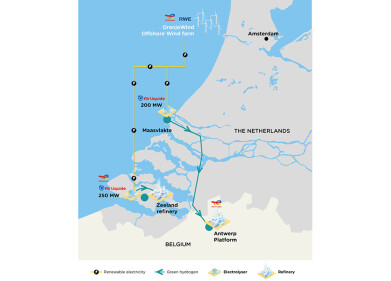Green energy
Could Waves Power Britain?
Dec 22 2014
British inventor Alvin Smith certainly thinks so. Smith’s brainchild Searaser, which has recently undergone tank testing at Plymouth University, is designed to overcome two of the biggest challenges facing renewable energy generators today: variable output and cost. Unlike the majority of marine energy technologies, Searaser doesn’t generate electricity miles offshore; it uses the motion of the ocean to pump highly-pressurised seawater ashore, where it can be used to produce electricity.
Searaser is moved by wave power, causing pistons within the devise to power the pump, which propels pressurised water through a pipe towards an onshore hydropower turbine. This set-up has been labelled a “sea mill” since it does not rely on specific weather conditions.
While cynics argue that Britain’s energy requirements cannot be met by renewables alone, others suggest wind, sun and sea power can and will generate the electricity needed in the future.
Education and funding
When it comes to renewable energy sources, sea power is considered the most difficult to harness. Not only does the ocean represent an extremely hostile environment, research into sea power is poorly funded and less advanced than research into solar and wind energy.
Though sea mills have the potential to produce significant amounts of non-polluting energy for the UK and beyond, a great deal more research and funding is required to make them a reality. In addition to this, the creation of sea mills may interfere with the natural rhythms of the ocean and its inhabitants.
Ecotricity
Ecotricity founder Dale Vince is more positive. “Our vision is for Britain’s electricity needs to be met entirely from our big three renewable energy sources – the wind, the sun and the sea,” Vince asserts.
“We believe these sea mills have the potential to produce a significant amount of the electricity that Britain needs, from a clean, indigenous source and in a more controllable manner than currently possible,” Vince explains.
“The potential is enormous. This is a British invention that could transform the energy market not just here in Britain, but around the world. Our plan is to develop the technology and make them here in Britain, bringing green jobs as well as green energy to our country.”
Lately, the USA’s largest oil and gas supplier, ExxonMobil, admitted publically that climate change was not merely occurring, but being accelerated by the combustion of fossil fuels. As oil, coal and natural gas supplies dwindle, and prices soar, innovations like Smith’s are being taken more seriously than ever before. If Smith’s Searaser actually works, and he can secure the sort of money required to take his project forward, we could be hearing much more about Searaser over the coming years.
What next?
For more information on this fascinating topics, read our recent post: 3 Amazing Ways to Harvest Clean Energy from Oceans.
Events
May 18 2025 Algiers, Algeria
23rd International Water Management Exhibition
May 20 2025 Prague, Czech Republic
Jun 17 2025 Guangzhou, China
Singapore International Water Week Spotlight 2025
Jun 23 2025 Singapore
Jun 25 2025 Sao Paulo, Brasil














